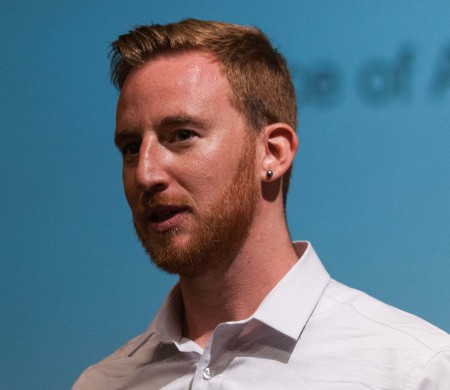Interdisciplinary Learning…I can almost see all of your eyes rolling at just the thought of these words together. This term represents perhaps the most overused buzzword in higher education today. For more than a century, the “modern” social science disciplines like Sociology, Economics, Psychology, and Anthropology have battled each other professionally and intellectually. In a very literal sense, college and university faculty argue with each other and with administrations to justify expanding their particular departments. More generally, debates continue about which discipline best prepares students to study and understand the world around them. In fact, traditional higher education in America is based on these debates.
Since the 1960s, however, a new way of looking at the world has begun to earn a place in the academy. Pitzer, founded in 1963, has always embraced the interdisciplinary approach to learning. Interdisciplinary learning is an acknowledgment that people are multi-faceted, that the world does not conform to traditional academic disciplines. As a result, we are looking for students and faculty who agree that the learning process is best served when we ask what traditional disciplines can do together, rather than how they differ.
One of the ways you can see this value manifested on campus is in the structure of our Field Groups. Most colleges and universities place their faculty within traditional departments. We’re not most colleges. At Pitzer, faculty members can choose to identify with different Field Groups, allowing for a freer exchange of intellectual perspectives. We have professors here at Pitzer who may have been “trained” in graduate school as Anthropologists or Neuroscientists, but they choose to teach courses in History or Psychology. Further, we don’t physically separate our faculty by subject area. You won’t find the “Sociology building” on campus, or the “English/World Literature” building either. You will find Economists sitting next to Psychologists and Poets sitting next to Mathematicians.
Andre Wakefield, Professor of History at Pitzer, teaches a course on the History of the Disciplines and is currently working on a new project that will consider the historical, intellectual, and practical issues surrounding academic disciplines in higher education.
Another example of Interdisciplinary Learning has been the rise of the “Studies” in higher education, and particularly at Pitzer. Several of our Field Groups and majors fall into inherently interdisciplinary categories such as Media Studies, Chicano/Latino Studies, Political Studies, and Organizational Studies (to name but a few). The idea behind these degree programs is to provide room for students to explore a subject from a variety of perspectives. For example, in Environmental Studies when we talk about water usage in the Southern California area, we are forced to acknowledge that we are really talking about a political issue, and a sociological issue, and an economic issue, and an historical issue, as well as a scientific issue.
Christine Zarker Primomo is currently a Senior at Pitzer College and an Admission Fellow here in our office, among other things. Her major – Science, Technology, and Society (STS) – is a great example of Interdisciplinary Learning. Christine says, “These classes span across multiple disciplines including but not limited to: history, philosophy, anthropology, politics and public policy, and sociology. After taking Governing India my first semester, I discovered my interest in global water issues. STS has allowed me to combine my love for science with my passion for improving the health of and access to water resources. One of the best parts about Pitzer, especially majoring in an interdisciplinary field, is that each semester, without consciously trying, my classes all come together. Learning takes on a new face when in addition to taking classes I love, I see that they are all somehow connected under a bigger idea, one not tied to a specific discipline but rather have a diversity of views and practices. Part of the excitement of the semester involves discovering new links between classes like Environmental Chemistry, Language and Society, the Politics of Water and Philosophy of Science.”
For prospective students, we’re interested to know how the idea of Interdisciplinary Learning helps you look at your world. What are the theoretical and methodological tools that you need to take on challenges in your community? What kinds of multi-dimensional issues pique your interest? If you could create your own major, what would it include?
If you are excited to answer these questions, then you have gone beyond the buzzword. I encourage you to think about how your education will challenge you to find questions and answers in curious places. Tell us how you see the world, its problems, its successes, and why you want to continue your explorations at Pitzer. Read faculty bios and course descriptions at the various institutions that you’re considering right now; if they’re not assigning readings from different fields, then they’re not interdisciplinary. If they’re not assigning men and women on their reading lists, then they’re not interdisciplinary. If they’re not assigning ethnically and racially diverse sources, then they’re not interdisciplinary. Put institutions of higher education to the test.
Thanks for coming back to Admission Unpeeled. There’s a lot more information coming in the days ahead so stay tuned and keep reading!
Posted by Adam Rosenzweig, Admission Counselor
